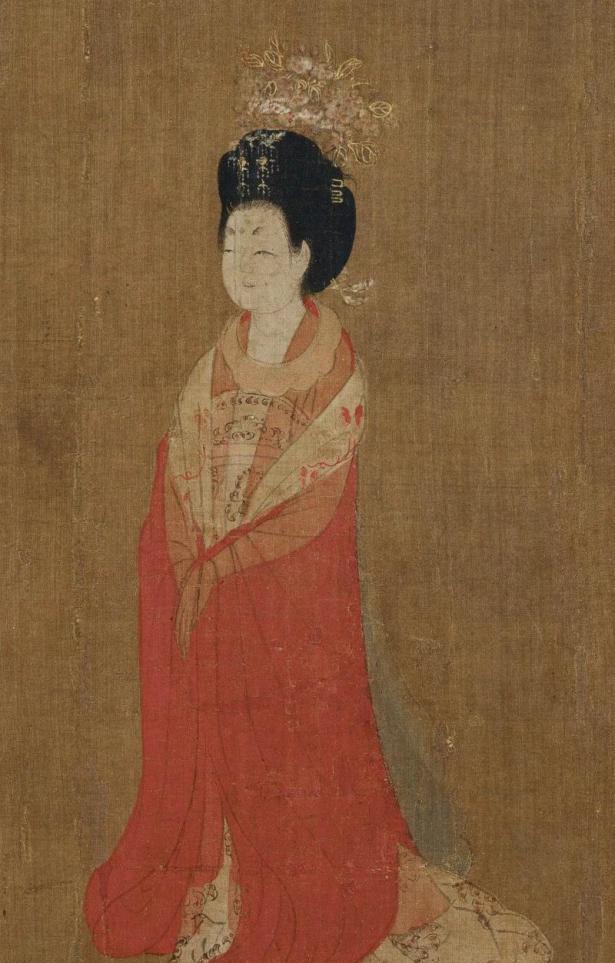
Most of the ancient royal families liked to choose the daughters of official eunuchs and powerful courtiers as concubines, or the relatives of the previous generation of empresses and the next generation of emperors, political marriages, door-to-door pairs...
For example, Empress Zhang Yan of Liu Ying, Emperor Hui of Han, who was the daughter of Emperor Hui's sister Princess Lu Yuan, the granddaughter of Empress Lü;
Empress Bo of the Han Jing Emperor, a niece of her grandmother Empress Bo;
Huo Chengjun, the daughter of the chancellor Huo Guang, was the empress of Emperor Xuan of Han, and his granddaughter Shangguan Shi was the empress of Emperor Zhao of Han;
The first empress of The Han Dynasty, Liu Xie, was the daughter of Fu Shou, the seventh grandson of The Great Situ Fu Zhan, and the second empress was Cao Jie, the daughter of The Powerful Minister Cao Cao;
Empress Dou of The Tang Dynasty, Empress Dowager Li Yuan, was the daughter of Dou Yi, Duke Wu of Northern Zhou, and her biological mother was the fifth daughter of Emperor Wen of Zhou;
Emperor Taizong of Tang's empress Dowager Li Shimin was the daughter of the Sui dynasty general Sun Sheng, and the tang dynasty chancellor Sun Wuji was the half-sister of the same mother.
The selection of the daughter of the family, the daughter of the powerful minister, and the selection of the queen concubine by the relatives of the later clan seems to consolidate the power of the vested interest group, but in fact it will cause many ills such as the concubine interfering in the government and the chaotic government of the powerful minister.
Zhu Yuanzhang, the Ming Emperor of commoner origin, recognized this very early, and he took many measures to strengthen the imperial power, strictly prohibiting eunuchs from participating in political affairs, abolishing the chancellor, and cracking down on the forces of meritorious heroes, while strengthening the management of the harem and avoiding causing the concubines to interfere in politics.
The "History of Ming" records: "Ming Taizu jian of the previous generation of female calamities, Li Gang Chen Ji, shou Yan Neijiao ... Prevent female protagonists from interfering in politics. ”
In the first year of Hongwu (1368 AD), Ming Taizu ordered Confucian ministers to compile the book "Female Commandments" as a textbook for educating harem concubines, strictly restricting the words and deeds of concubines.
Ming Taizu once said to the scholar Zhu Sheng, "Whoever rules the world, the right family comes first..."
To govern the world, we must first manage the family and govern the family, we should start from the words and deeds of husband and wife cautiously, although the queen concubine is the mother of the world, but can not interfere in political affairs.
Spoiling concubines should not be excessive, for excessive will lead to their arrogance, loss of order from top to bottom, and the participation of the courts of all generations in political affairs, and there is no misfortune that will not happen.
Only the Ming Lord could prevent problems before they happened, and the cultivation of the "Female Commandment" by The Ming Dynasty qing and others was to make the empress dowager follow the example of the ancient sages and obey the women's morality.
Ming Taizu also admonished future generations that the empress must choose from a commoner family, because "the queen concubine is from a humble origin, can be frugal and self-loving, and can support the frugal rule of the king." ”
On the contrary, the empresses of aristocratic origin were mostly arrogant and extravagant.
Choosing the children of commoners can avoid historical tragedies such as the Wang family's disasters against the Han Dynasty and the Jia Nanfeng's troubles with the Jin Dynasty.
In the third year of Hongwu (1370), Ming Taizu formally issued an edict clarifying the duties of the empress: "The honor of the empress shall stop the matter of the concubines in the palace, that is, outside the palace gate, and nothing shall be premeditated." ”
It also stipulates:
The Tianzi and the prince chose the concubines, and through the way of the folk draft, they required the show girls to be selected from the innocent families of low-ranking officials or from the families of commoners, and it was strictly forbidden for the ministers to offer beautiful women to the emperor for various reasons.
In addition to empress Xu Shi (the daughter of the meritorious Xu Da) of The Ming Dynasty empress Dowager Zhu Di, most of the concubines of the Ming Dynasty were from the "Confucian single door" near the capital.
Ming Chengzu began to establish a system of regular tribute to beautiful women in the surrounding vassal states.
In order to prevent the empress dowager from interfering in the government, Ming Taizu also restored the burial system of the empress dowager.
After the death of Crown Prince Zhu Biao, all the concubines were martyred;
After The death of Ming Taizu, all thirty-eight concubines were martyred.
This continued until the ming dynasty, and after Emperor Ming's restoration, this cruel and unpopular system was abolished.